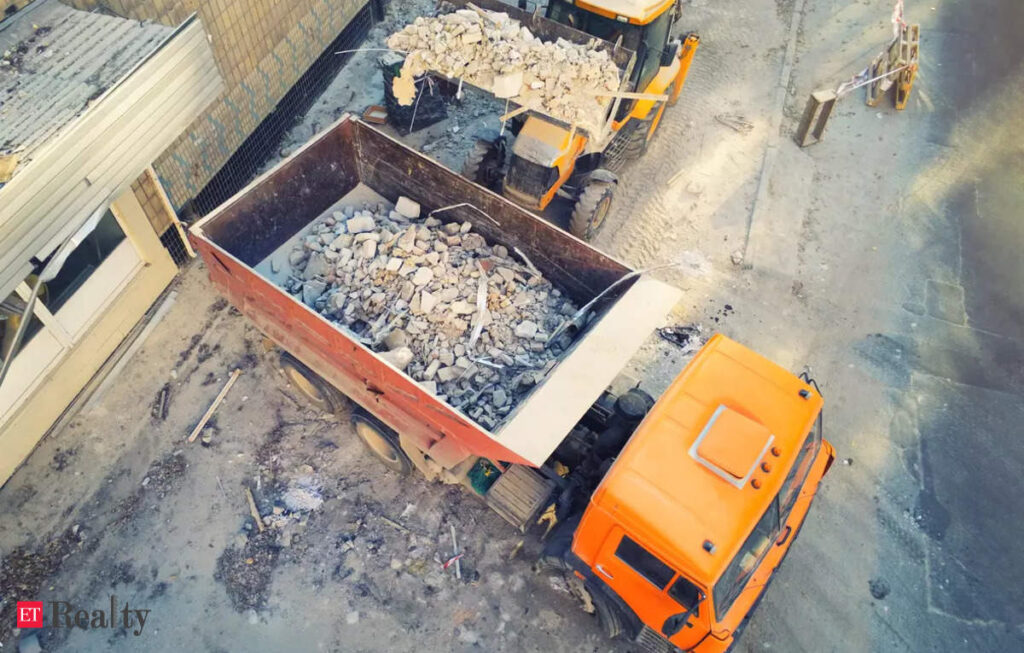Karnataka government drafts policy for sustainable management of C&D waste, ET RealEstate

The Karnataka government has sketched a draft policy for better management of Construction and Demolition (C&D) waste in the state, including Bengaluru. The policy will come into effect from April 1, 2025.
The policy is expected to reuse and recycle at least 50% of C&D waste generated in municipal corporations’ limits by December 2026.
It will also confirm that at least 50% of C&D waste generated in ULBs (Urban local bodies) in Karnataka will be reused or recycled by December 2027 and will ensure that no C&D waste is dumped in open spaces in Karnataka by December 2027.
The document, in the draft stage, is open for public comments.
“The Ministry of Environment, Forest and Climate Change (MoEF&CC) had released one gazette, based on which, every state government is supposed to formulate a policy around management of C&D waste. The draft policy has been prepared by Karnataka and is given for circulation for comments from the public,” said a senior official from Karnataka State Pollution Control Board.
The policy, in line with the Centre’s 2016 Construction & Demolition Waste Management Rules, aims to sustainably manage rising waste in urban and rural areas, covering urban local bodies and zilla panchayats in Karnataka.
It is also aimed at relevant state authorities, waste generators including bulk waste generators, service providers, and other stakeholders for proper management of C&D waste and to control and minimise its indiscriminate illegal dumping.
“Most cities and gram panchayats in Karnataka do not have formal demolition permits and developers hire local contractors for demolition. The valuable materials resulting from demolition are salvaged by the informal sector, leaving behind the rubble. The majority of this waste often ends up in dumpsites or unauthorised places. The policy has been drafted to minimise illegal dumping,” said an official.
Under the policy, every waste generator will be responsible for the segregation and storage of the C&D waste they generate. No person or organisation will be allowed to dispose of the waste on the streets, public spaces, footpaths, pavements, roads, water bodies, river banks, lake beds, forests, and other eco-sensitive areas or any other location that leads to harm to the environment.
The draft policy states that local authorities will be responsible for encouraging in-situ processing of C&D waste by generators and the use of recycled C&D waste products in construction to bring down transportation and processing costs.
Under the new rules, an assessment of C&D waste being generated in Karnataka will also be carried out by the local authorities within their jurisdiction. They will also be responsible for making arrangements for containers, regular collection, and transportation of C&D Waste in covered vehicles to processing and disposal facilities, either through itself or by appointing and registering private operators.
For monitoring and efficiency of the collection, storage, and transportation, advanced information management, mapping, and communication technologies such as GPRS, GPS, etc.
It will also provide directions on the processing of the waste along with market development and promotion of C&D recycled products.
“While the draft policy appears promising, implementation will be the decisive factor in its success. We have not been able to manage this waste despite nearly a decade of C&D Waste Management Rules in existence. The government will also have to bring in a strict mandate for the reuse of recycled products,” said a solid waste management expert.









